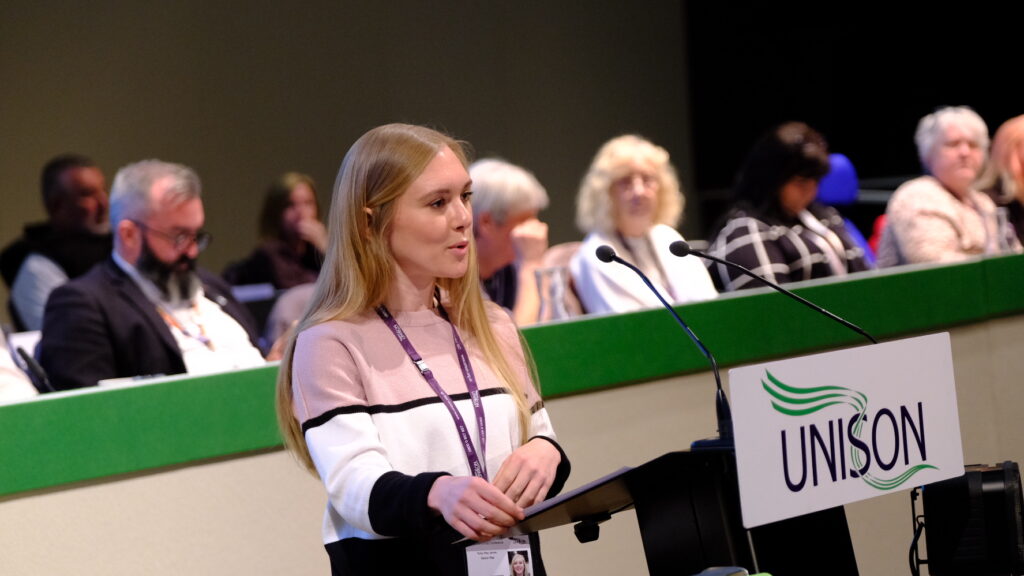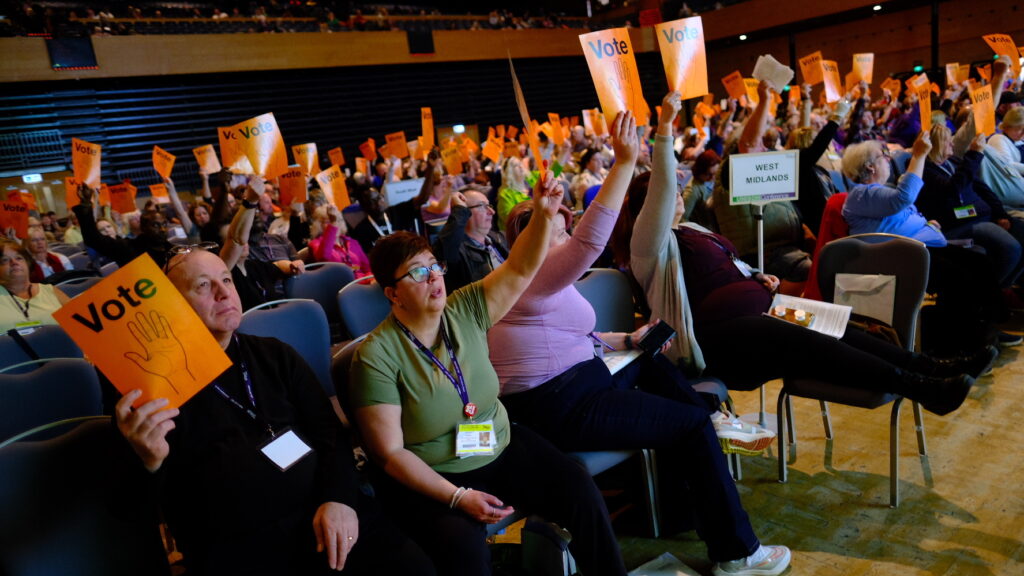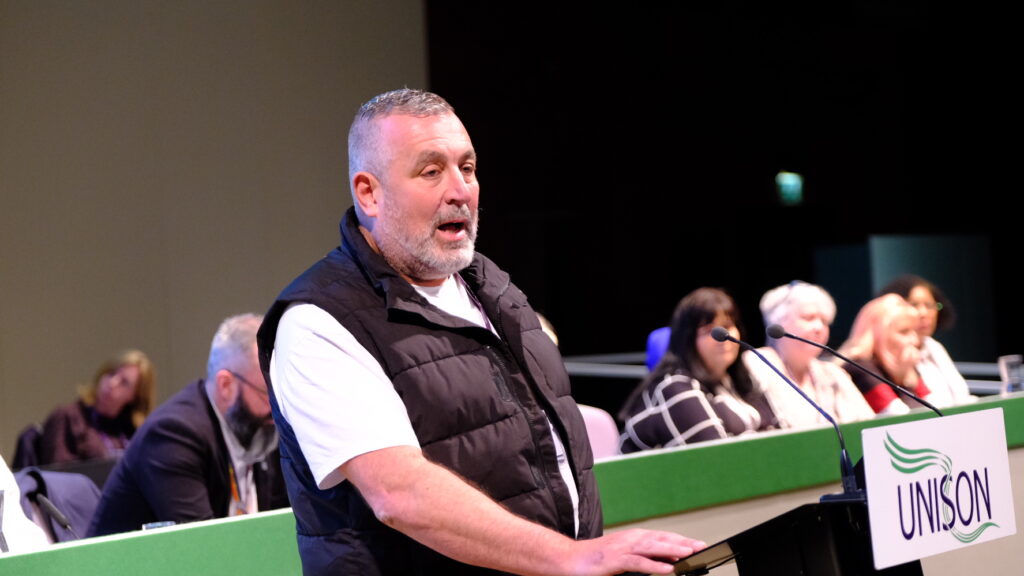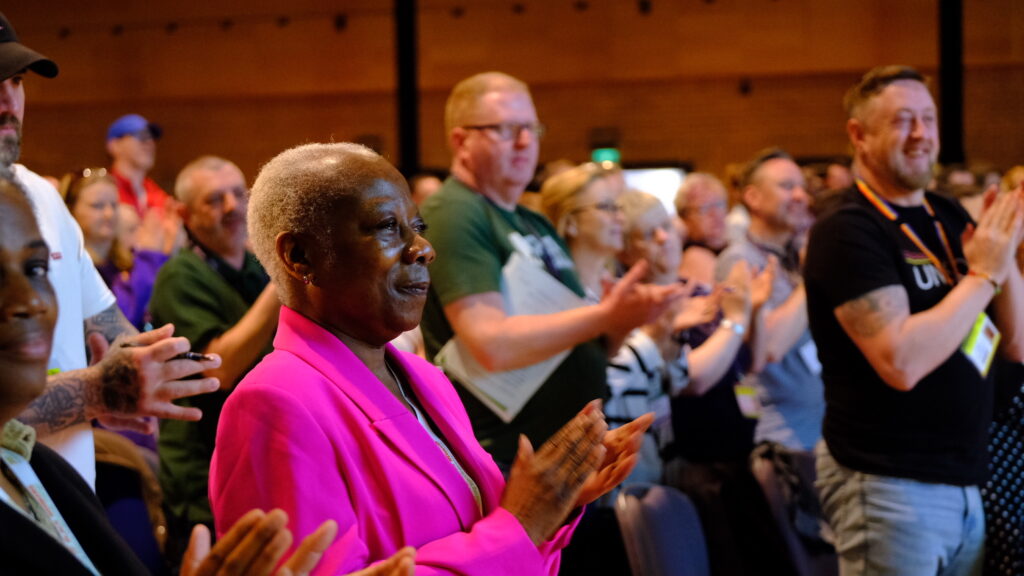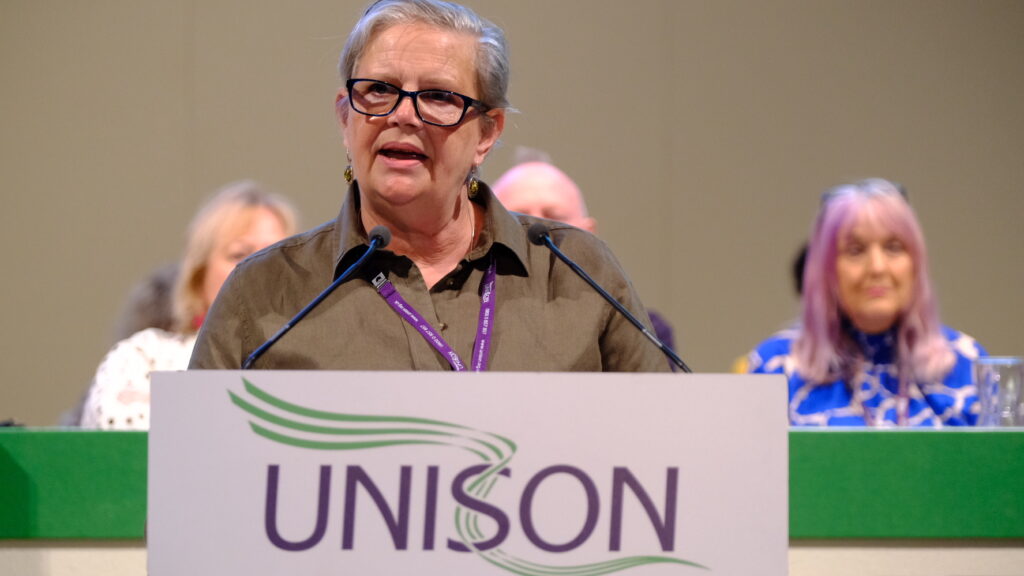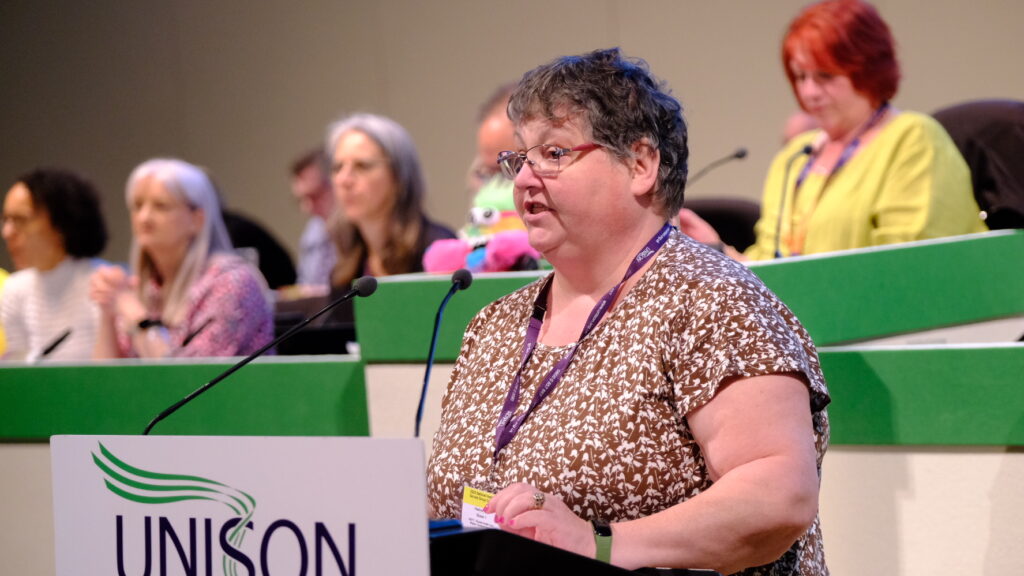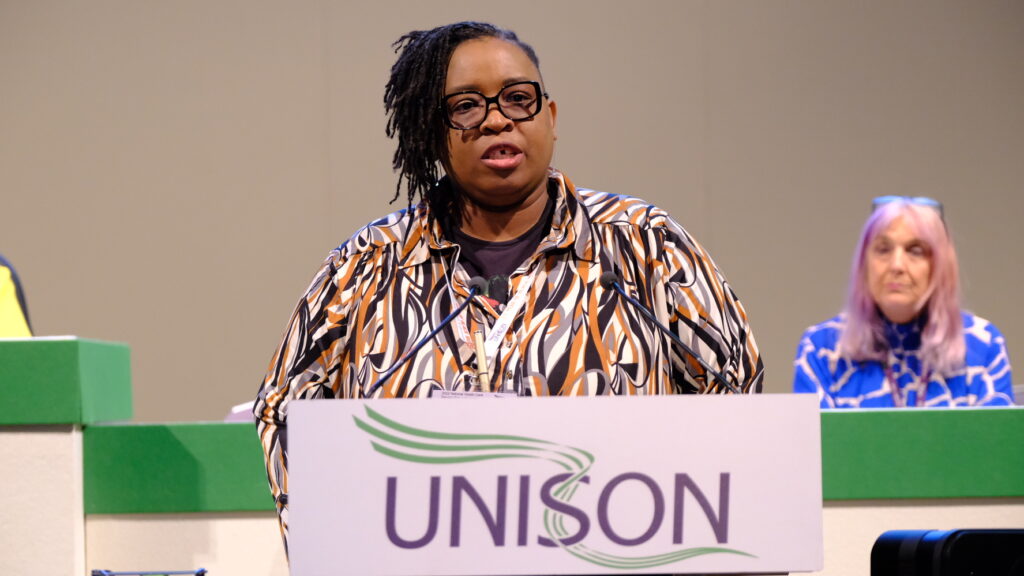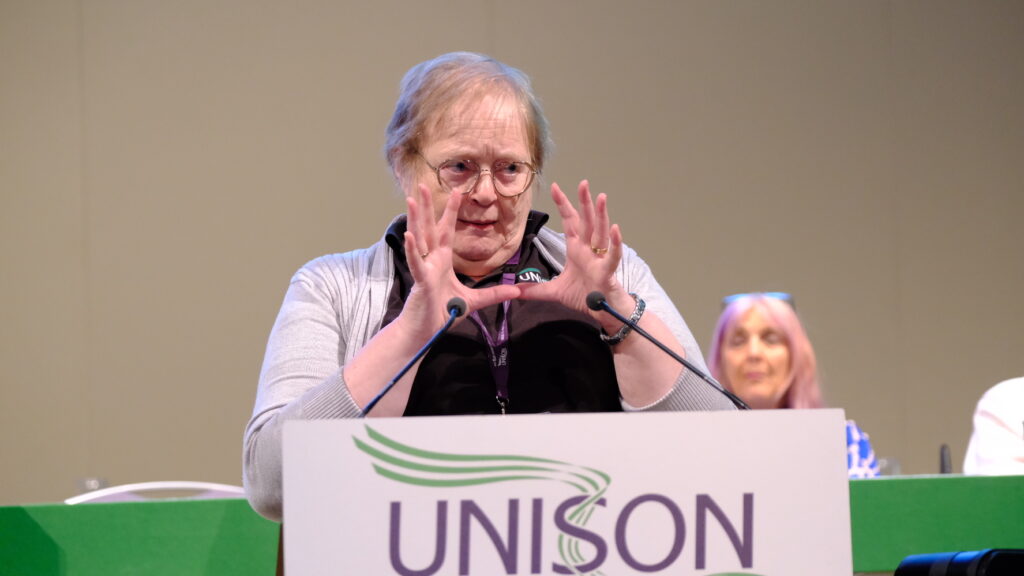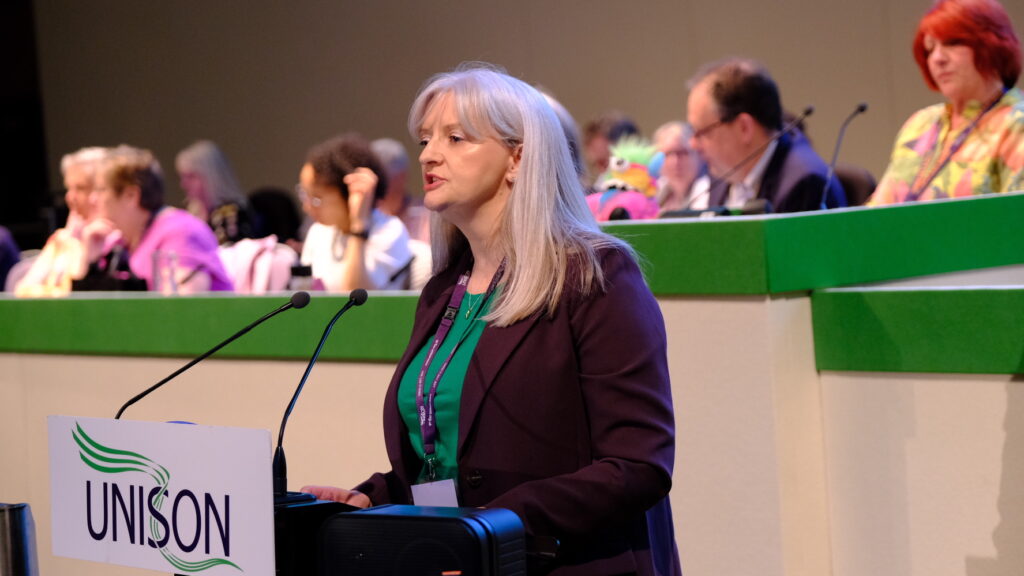Health conference closed yesterday (Wednesday) with a session focussing on the recruitment and retention of health staff.
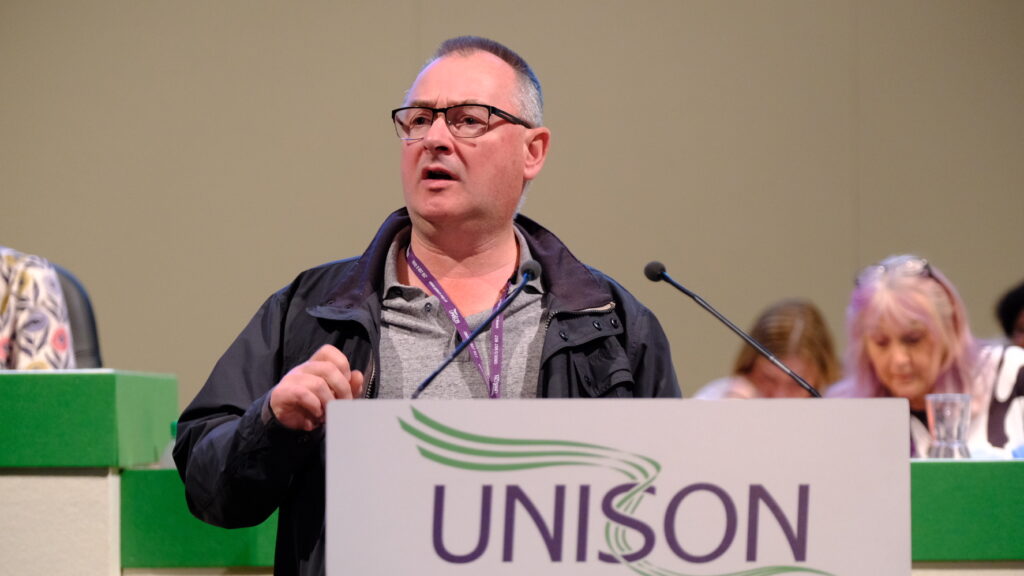
Jonathon Whitney (pictured above) from University Hospitals Birmingham branch moved a motion calling on UNISON to campaign to reinstate paid training and raise public awareness of health student debt.
Speaking of his personal experience with the bursary system that was ended in 2016, he said: “In 2009 I found myself in an awkward situation. Having been made redundant, I was looking for a new career – and the bursary is the reason I am standing here now.
“It gave me hope that there was a career, I had never thought about, in the NHS.
He told conference of conversations he has had in his workplace more recently: “I was speaking to some of the younger members in my department and they have massive debt they’ve accrued over the last three years, from the cost of training, never mind the cost of living,” and argued that this huge level of debt is a massive factor in the inability to recruit new staff into the NHS.
“We need to be able to recruit people or there will be no-one left,” he said.
Megan, an HCA from Nottingham university hospitals branch spoke of the exciting news that she has a place on a nursing course in September. But she added that she was extremely nervous about how she was going to fund it.
“I won’t be able to work a job full time and the financial costs of being a student are higher than ever.”
She highlighted that not only does the bursary mean students have to worry less about finances but that “The bursary will ease the pressure on us and allow us to actually focus on developing the training and skills we need.”
Rising costs of registration
Ruby James (pictured above), of the science, therapy and technical occupational group, moved a motion on the recent attempt by the health and care professions council (HCPC) to hike their registration fees.
She said: “The HCPC has once again decided to increase its registration fees by a massive amount. 20% – double inflation. If we don’t pay, we don’t work.”
The move would affect a number of professions including occupational therapists, operating department practitioners, clinical scientists and many others.
She continued: “HCPC fees have risen by almost 50% since 2014. If only our pay had risen by the same amount. This shouldn’t fall on us, the registrants to bail out the HCPC.”
Eddie Woolley, an operating department practitioner on the health service group executive (HSGE), highlighted the extra lengths regulated professions have to go to: “We have to provide evidence that we’re fit to practice, work in our own time, just to prove that we’re able to work.”
He decried the poor value for money which the council provides registrants and said: “Regulators need to be held accountable. If the HCPC was a healthcare professional, it would be kicked off its own register.”
The motion called on the HSGE to survey members to develop UNISON’s position on regulation and the regulators and push for reform that is not detrimental to members while ensuring patient safety.
Protect overseas nursing and care staff
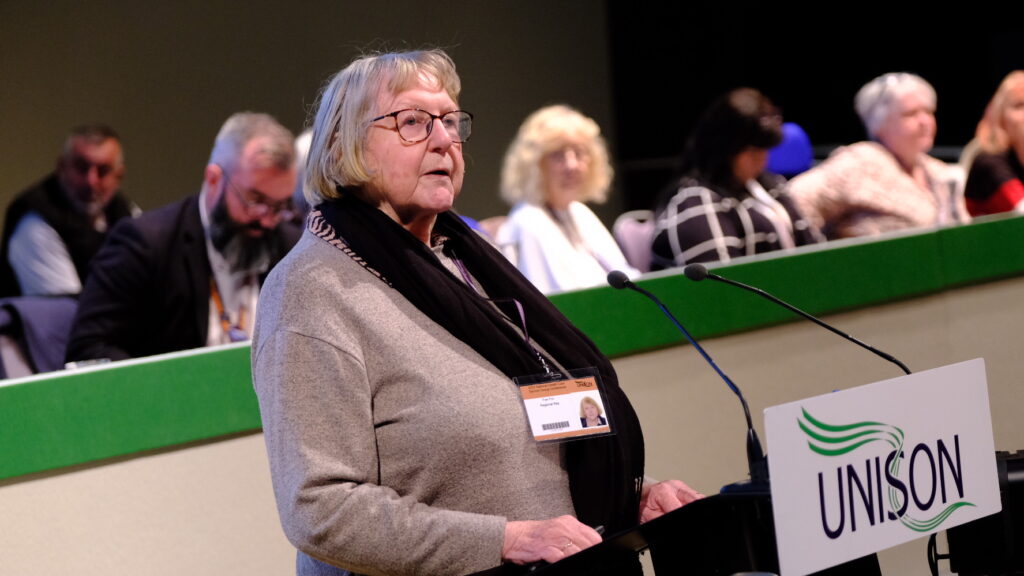
Continuing on a theme of recruitment and retention in the NHS Fern Fox (pictured above), a South East region delegate, told conference: “We are all very conscious of nursing shortages in our NHS. Recruiting staff from overseas are how gaps are filled. But it is a fact that these nurses are being exploited by employers.”
She highlighted how many overseas staff are vulnerable and must be given support and asked delegates to think of their experience, talking with international colleagues and hearing their stories of racism and exploitation.
The motion welcomed the establishment of UNISON’s network for overseas nurses and called on the SGE to continue to lobby government for proper enforcement of provisions within the code of practice for the international recruitment of health and social care staff.
Safe staffing levels in our NHS
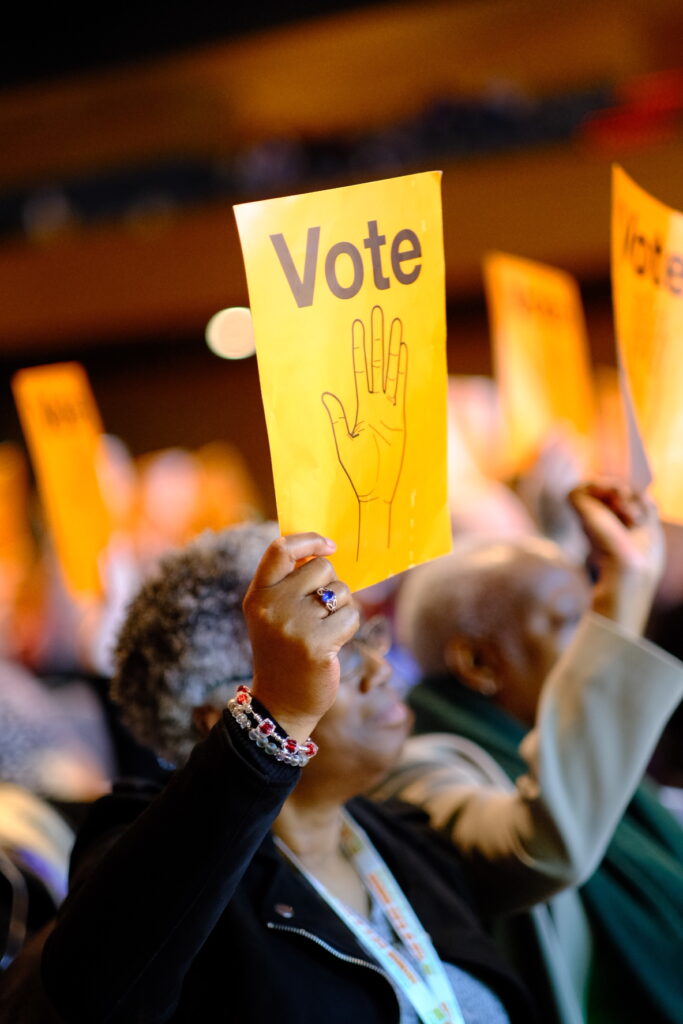
Gamu Nyasoro moved a motion of safe staffing levels in the NHS. She opened by asking conference: “How many of you have gone to work and they tell you, ‘you need to go to the emergency department because they are short’? Or how many times on a nightshift is a newly qualified band five put in charge of the whole ward?”
She noted how: “If we don’t have safe staffing levels, we harm our patients because we won’t be able to give the best care,” but asked conference not to forget that “We also harm our staff – they can’t go to the toilet, they can’t eat, their sickness levels increase.”
Dawn Ward, Cardiff & Vale health, told conference of the effect that the 2016 safe staffing act has had in Wales, saying: “It’s not perfect, but having legislation means our employers have a statutory duty report their safe staffing levels.”
She spoke of her branch’s involvement in a pilot campaign which saw staff take a survey after every shift to report whether staffing was at safe levels.
The motion, which carried, called on the HSGE to learn lessons from the pilot campaign and investigate unsafe staffing levels further and to organise to ensure staff are involved in workforce planning.
The article Recruitment, retention and registration discussed at health conference first appeared on the UNISON National site.
